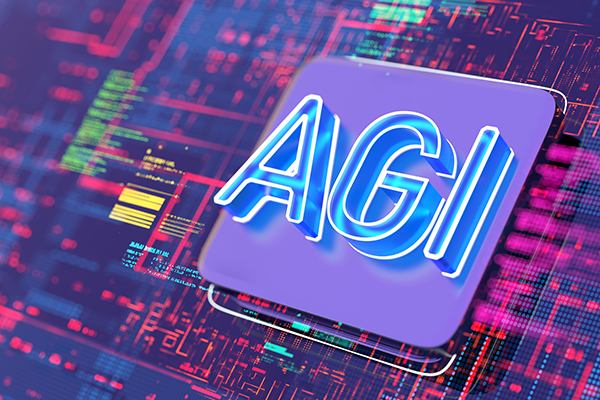Artificial General Intelligence (AGI) refers to a type of artificial intelligence that can understand, learn, and apply knowledge across a wide range of tasks, similar to human intelligence. Unlike narrow AI, which is designed for specific tasks, AGI aims to perform any intellectual task that a human can do. The pursuit of AGI has been a topic of interest among researchers and technologists for decades.
Sam Altman’s Role in AI Development
Sam Altman, the CEO of OpenAI, has been a prominent figure in the AI community. His leadership at OpenAI has focused on advancing AI technologies while ensuring their safe and ethical use. Altman has often spoken about the potential of AGI and its implications for society. His vision includes not only the technical aspects of developing AGI but also the responsibility that comes with it.

The 2025 Timeline
Altman has set an ambitious goal of achieving AGI by 2025. This timeline has sparked discussions and debates within the tech community. Many experts question whether this goal is realistic, given the complexities involved in creating AGI. The timeline suggests a rapid advancement in AI capabilities, which raises both excitement and skepticism among researchers.
Technological Advancements Needed
To achieve AGI, significant technological advancements are required. Current AI systems, including deep learning models, have made impressive strides but still lack the generalization capabilities of human intelligence. Researchers need to develop algorithms that can learn from fewer examples and understand context in a way that mimics human reasoning.
Ethical Considerations
The pursuit of AGI brings forth numerous ethical considerations. As AI systems become more capable, questions about their impact on jobs, privacy, and security arise. Altman emphasizes the importance of developing AGI responsibly. Ensuring that AGI aligns with human values and ethics is crucial to prevent potential misuse or harmful consequences.
Collaboration in AI Research
Achieving AGI is not a task that can be accomplished by a single organization. Collaboration among researchers, companies, and governments is essential. Altman advocates for an open approach to AI research, where knowledge is shared to accelerate progress. This collaborative spirit can lead to breakthroughs that might not be possible in isolated environments.

Challenges in AGI Development
The journey to AGI is fraught with challenges. Technical hurdles, such as creating systems that can reason and understand complex concepts, are significant. Additionally, there are societal challenges, including public perception of AI and regulatory frameworks. Addressing these challenges will require a concerted effort from the entire AI community.
Public Perception of AGI
Public perception plays a crucial role in the development of AGI. Many people have concerns about the implications of AGI, including fears of job displacement and loss of control over intelligent systems. Altman acknowledges these concerns and emphasizes the need for transparent communication about the goals and benefits of AGI. Building public trust is essential for the successful development and deployment of AGI technologies.
Potential Benefits of AGI
If achieved, AGI has the potential to revolutionize various fields, including healthcare, education, and transportation. AGI could lead to breakthroughs in medical research, personalized learning experiences, and more efficient transportation systems. Altman believes that the benefits of AGI could far outweigh the risks if developed responsibly.
Conclusion: A Realistic Goal?
In conclusion, Sam Altman’s vision of achieving AGI by 2025 is an ambitious and challenging goal. While there are significant hurdles to overcome, the potential benefits of AGI make it a worthy pursuit. The next few years will be critical in determining whether this vision can be realized. The collaboration, ethical considerations, and technological advancements will play a vital role in shaping the future of AGI